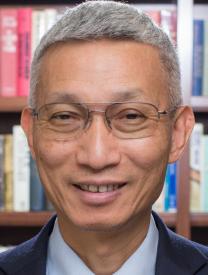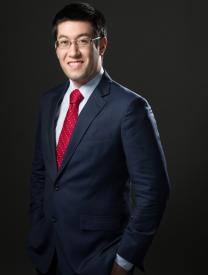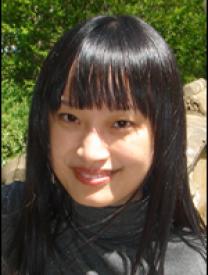The Origins and Dynamics of Crony Capitalism in China: Insights from 260 Cases of Collusive Corruption
Minxin Pei, Professor of Government, Claremont McKenna College
Corruption in the post-Tiananmen era exhibits distinct characteristics not found in the 1980s, such as astronomical sums of money looted by officials, their family members, and their cronies in the private sector,…
A Conversation with the Honorable Kevin Rudd:
U.S. Policy under Xi and Trump
Featuring the Honorable Kevin Rudd, 26th Prime Minister of Australia; President, Asia Society Policy Institute. Moderated by Wharton School Dean Geoff Garrett.
Presented in partnership by the Penn Wharton China Center, Perry World House, Center for the Study of Contemporary China and the Wharton China Business Society.
Networking China: The Digital Transformation of the Chinese Economy
Yu Hong, Assistant Professor of Communication & Journalism, University of Southern California
In recent years, China's leaders have taken decisive action to transform information, communications, and technology (ICT) into the nation’s next pillar industry. Networking China offers an overdue examination of…
Material Nostalgia for the Cultural Revolution Era: The Affective Practices of Revolutionary Music in Contemporary China
Shelley Zhang, Graduate Student, Department of Music, University of Pennsylvania
In this project, I investigate the re-popularization of material culture and music from the Cultural Revolution in contemporary China. Specifically, I explore how my interlocutors from the Hunan province celebrated…
The Rise of China and the Changing Nature of Power in the 21st Century
Adam Liff, Assistant Professor of International Relations, Indiana University
This talk engages two basic questions: What makes China’s rise to “great power” status in the 21st century different from those of the past, and what does that mean for the potential for international conflict…
Studying and Working in China
Francis Miller, Senior Academic Consultant, AIC Education
Are you studying Chinese, but aren’t sure about studying abroad? Are you interested in working or interning in China, but aren’t sure how to get started? Hear Francis Miller EALC ’13 share the good, the bad, and the…
Diverging Globalizations: National and Sectoral Pathways to Development in China and India
Roselyn Hsueh, Associate Professor of Political Science, Temple University
China and India are two large, developing countries that have globalized and undergone tremendous development in the last several decades. Yet, they have taken separate paths toward globalization. Dr. Hsueh…
The Return of Ideology: The Search for Regime Identities in Post-Communist China and Russia
Cheng Chen, Associate Professor of Political Science, University at Albany, SUNY
This study examines post-communist Chinese regime’s ideology-building project in comparison with that in Russia, as evidenced by their respective identity and cultural politics as well as developmental strategies. …
How Far is China from the Rule of Law?
He Haibo, Professor of Law, Tsnghua University School of Law
He Haibo is Professor of Law at Tsinghua University School of Law. He is currently a visiting scholar at Harvard Law School’s Program on East Asian Legal Studies. Professor Jacques deLisle will serve as…
Shocks, Skills, and Political Instability in Authoritarian Regimes: A Theoretical Analysis and Application in Maoist China
Victor Shih, School of Global Policy and Strategy, UCSD; Pengfei Zhang, School of Economics, Peking University; Mingxing Liu, Institute of Education Finance Research, Peking University
Non-democracies are seen as inherently unstable because of the high frequency of irregular and often violent leadership turnovers. We investigate the underlying logic of stability and instability in authoritarian…






